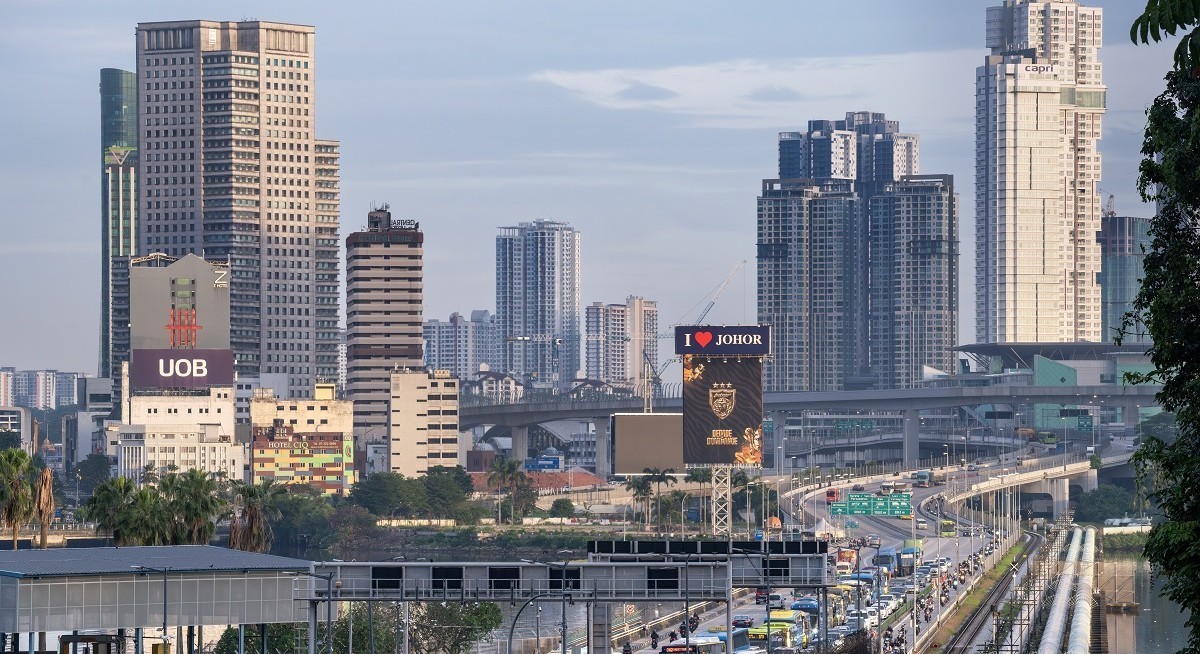To Tay, some of the key milestones that differentiate the JS-SEZ from previous efforts include the Johor Bahru-Singapore rapid transit system (RTS), which is expected to be completed by the end of 2026. The RTS, unlike prior talks of connectivity between Singapore and Malaysia, finally broke ground in 2020 and 2021 in Johor Bahru and in Singapore respectively.
The zone is also set up for an actual increase in the mobility of human capital between both cities, Tay adds.
To this end, Singapore businesses will benefit from the cost efficiencies and expanded market reach, especially in business services, healthcare and tourism.
“Johor is evolving from being a satellite to Singapore into a complementary growth engine,” he said. He added that commercial activities and residential developments by 2030 will transform the city into a more liveable hub.
See also: Singapore-based companies have committed over $5.5 bil worth of investments into Johor: DPM Gan
In his presentation, Tay spotlighted the healthcare industry as one of the beneficiaries of the JS-SEZ. Within the JS-SEZ, businesses will have accessibility to high-quality healthcare and comparable infrastructure to Singapore. They will also be able to expand capacity to accommodate Singapore’s ageing population, compared to the lack of land for private hospitals tio expand within the city-state. In addition, businesses can look into a wider spectrum of healthcare services such as rehabilitation centres and retirement villages.
At present, companies such as dual-listed IHH, Malaysia-listed KPJ Healthcare and Singapore-listed Q&M Dental are already within the zone. IHH is represented by Gleneagles Medini, while KPH Healthcare has KPJ Bandar Dato Onn, KPJ Puteri, KPJ Johor and KPJ Puteri. Q&M Dental already has 17 clinics in the state of Johor and nine within the JS-SEZ itself.
Other names such as Sunway Healthcare, under Malaysia-listed Sunway Bhd, through Sunway Iskandar Puteri, and Singapore-listed Thomson Medical Group, through its Johor Bay development, also aim to be within the zone. Q&M is also targeting to expand within the JS-SEZ itself.
The way Tay sees it, governments on both sides should commit to conducive business regulations such as labour laws. Building a resident community within the JS-SEZ, such as the ability to use Medisave for healthcare services within the JS-SEZ, will also help make the zone a success.
At the event, Dr Melvin Heng, executive director and group CEO of Thomson Medical Group, lauded Johor as one of Southeast Asia’s most exciting healthcare expansion frontiers due to demographics and strong bilateral cooperation.
He noted that ageing demographics and Malaysia’s hospital capacity gap make healthcare a long-term opportunity, adding that “Johor’s growth will support the next phase of decentralised, specialist-driven care.”
Ho Lip Chin, chief investment officer (CIO) of Centurion Corporation, is “cautiously optimistic” about growth within the zone from industrial demand and foreign investment.
Centurion, which has a presence in Malaysia, aims to double its purpose-built workers’ accommodation (PBWA) beds in Malaysia from 28,000 currently. The company also aims to invest between RM300 million ($92.4 million) and RM500 million over the next three to five years.




